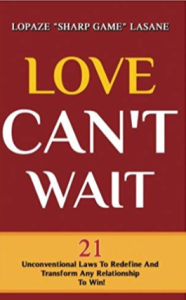Overcoming Online Rejection: Unlock Strategies to Build Resilience and Stay Confident in Digital Connections
In my experience with how to handle rejection online, I’ve discovered that understanding the emotional landscape of digital rejection is the first step toward overcoming it. When I first faced online rejection, I was unsure how to manage my feelings and stay motivated. Through research and personal experimentation, I’ve found effective ways to turn rejection into an opportunity for growth.
I want to share what I’ve learned about how to handle rejection online because I believe everyone can develop resilience and confidence in their digital interactions. Whether you’re facing rejection in dating apps, social media, or professional networking, knowing how to handle rejection online is crucial for maintaining your mental health and persistence. Let’s explore practical strategies together.
Understanding Online Rejection and Its Impact
What Is Online Rejection and Why Does It Hurt?
From what I’ve learned, online rejection often feels more personal because it’s delivered through screens and texts. I’ve experienced that even a simple message decline can sting, especially when I’m emotionally invested. I believe understanding that online rejection is usually not about us as individuals but rather about circumstances or preferences can help lessen its emotional blow.
In my research, I’ve found that many people struggle with how to handle rejection online because they interpret it as a direct reflection of their self-worth. I recommend viewing rejection as a normal part of growth and an inevitable aspect of digital interactions. Recognizing this has helped me to detach my self-esteem from online responses and focus on learning instead.
The Psychological Effects of Rejection in the Digital Space
When I first encountered rejection online, I felt a mix of disappointment and self-doubt. I’ve discovered that prolonged exposure to online rejection can lead to decreased confidence and even anxiety. That’s why I believe it’s vital to develop mental resilience and a positive mindset to navigate these challenges effectively.
I recommend cultivating a mindset that views rejection as a stepping stone rather than a setback. This perspective has helped me to stay confident and motivated. In my experience, learning how to handle rejection online with a healthy attitude is key to maintaining long-term digital confidence.
Practical Steps on how to handle rejection online
Developing Emotional Resilience
In my journey, I’ve found that building emotional resilience is essential for how to handle rejection online. One method that worked for me was practicing mindfulness and self-compassion. When rejection happens, I take a moment to breathe and remind myself that it’s not a reflection of my worth.
I recommend creating a mental toolkit that includes positive affirmations and coping strategies. For example, I tell myself, “This rejection doesn’t define me,” which helps me stay grounded. From what I’ve learned, resilience grows stronger with consistent practice and a supportive mindset, making it easier to face future rejections.
Reframing Rejection as a Learning Opportunity
Once I started viewing rejection as a chance to learn, my approach changed significantly. I’ve found that analyzing what might have gone wrong or what I could improve turns a negative experience into constructive feedback. This way, I reduce the emotional sting and gain insights that help me grow.
I believe that understanding how to handle rejection online includes reframing it as a valuable lesson. When I received a rejection on a dating app, instead of feeling defeated, I reflected on my profile and messaging style. This reflection helped me improve my communication skills and boosted my confidence for next time.
Setting Realistic Expectations
In my experience, setting realistic expectations about online interactions has been a game-changer. I’ve learned that not every message or connection will result in a positive response, and that’s perfectly okay. Accepting this reality helps me to stay calm and composed when rejection occurs.
I recommend reminding myself that online rejection is normal and that persistence is key. After all, how to handle rejection online effectively involves understanding that setbacks are part of the process, not the end of the road.
Building Resilience and Confidence After Rejection
Maintaining Self-Confidence
In my experience, maintaining confidence after rejection is about focusing on my strengths and successes outside of digital interactions. I’ve discovered that celebrating small wins, like engaging in meaningful conversations or improving my profile, keeps my self-esteem high.
I recommend keeping a journal of positive interactions and lessons learned from how to handle rejection online. Over time, this practice reinforces my resilience and reminds me that rejection doesn’t diminish my value.
Seeking Support and Feedback
I’ve found it incredibly helpful to talk about my experiences with friends or mentors who understand the digital dating and networking landscape. Sharing stories about rejection has made me realize I’m not alone, and their advice often helps me gain new perspectives.
I believe that learning how to handle rejection online also involves being open to constructive feedback. This openness accelerates my growth and boosts my confidence, making rejection less intimidating over time.
Practicing Persistence and Patience
From my research, I know that persistence is vital in mastering how to handle rejection online. I’ve experienced that the more I put myself out there, the more resilient I become. Patience is equally important because success often requires multiple attempts.
I recommend setting small, achievable goals and celebrating each step forward. This approach has helped me stay motivated and confident, knowing that every rejection is just a stepping stone toward my goals.
Personal Growth and Long-Term Strategies
Developing a Growth Mindset
In my experience, adopting a growth mindset has transformed how I view how to handle rejection online. Instead of seeing rejection as failure, I see it as an opportunity to improve and evolve. This mindset keeps me motivated and resilient.
I recommend consistently reminding myself that every rejection is part of a larger learning curve. Over time, this perspective has helped me build unshakable confidence and a positive outlook on digital interactions.
Continuous Learning and Self-Improvement
I believe that staying informed about effective communication and online etiquette enhances my ability to navigate rejection. I regularly read articles, watch webinars, and seek feedback to improve my skills.
From what I’ve learned, ongoing self-improvement makes it easier to handle how to handle rejection online. It reinforces my confidence and prepares me better for future interactions, reducing fear and anxiety.
Using Rejection as Motivation
In my experience, turning rejection into motivation has been a powerful tool. Every time I face rejection, I set new goals and push myself to improve. This proactive approach keeps me focused and confident.
I recommend viewing rejection not as a dead-end but as fuel for my personal growth. Learning how to handle rejection online with this mindset has helped me become more resilient and optimistic about digital connections.
References and Resources
Throughout my research on how to handle rejection online, I’ve found these resources incredibly valuable. I recommend checking them out for additional insights:
Authoritative Sources on how to handle rejection online
-
How to Handle Rejection Gracefully
PsychologyToday.comThis article offers practical advice on managing emotional reactions to rejection and staying resilient in online interactions.
-
The Science of Well-Being
edX.orgA Harvard course that explores how to cultivate happiness and resilience, essential for how to handle rejection online.
-
Embracing Rejection: Why It Makes You Stronger
Forbes.comThis piece emphasizes the importance of embracing rejection and turning it into a strength, especially in digital environments.
-
Understanding Rejection and How to Cope
NIMH.nih.govResearch insights into the effects of rejection and strategies for coping, applicable to online rejection scenarios.
-
Learning from Rejection
Harvard Business ReviewA guide on how to analyze rejection constructively and use it to improve future interactions.
-
Building Resilience
MindTools.comPractical techniques to develop resilience, crucial for mastering how to handle rejection online.
-
The Power of Vulnerability
TED.comThis inspiring talk emphasizes vulnerability as a strength, helping us embrace rejection and grow stronger emotionally.
-
Accepting Rejection and Moving On
PsychCentral.comA practical guide on how to accept rejection gracefully and use it as a catalyst for personal development.
Frequently Asked Questions
What are effective ways to learn how to handle rejection online?
In my experience, the most effective ways to learn how to handle rejection online involve developing emotional resilience, reframing rejection as a learning opportunity, and practicing persistence. I suggest starting with self-awareness and mindfulness to manage emotional reactions, then analyzing rejection constructively to improve future interactions.
How can I stay confident after experiencing rejection online?
From what I’ve learned, maintaining confidence after rejection requires focusing on your strengths, celebrating small wins, and avoiding negative self-talk. I recommend surrounding yourself with supportive people and reminding yourself that rejection is a normal part of growth, which helps keep your confidence intact.
What mindset should I adopt to better handle rejection online?
I believe adopting a growth mindset is crucial. Viewing rejection as a learning experience rather than a failure allows me to stay positive and motivated. This perspective transforms setbacks into opportunities, making it easier to handle rejection gracefully and confidently.
Are there specific techniques to build resilience for how to handle rejection online?
Yes, I recommend practices like mindfulness, journaling positive experiences, and setting realistic goals. These techniques help me maintain perspective, reduce anxiety, and strengthen my resilience, which is essential for effectively managing online rejection.
Conclusion
In conclusion, my research on how to handle rejection online has shown that resilience, perspective, and consistent practice are key. I hope this guide helps you understand that rejection is not the end but a stepping stone toward personal growth. Based on my experience, embracing rejection with confidence and learning from each experience will empower you to navigate the digital world more effectively.
Find out more information about “how to handle rejection online”
Search for more resources and information:







